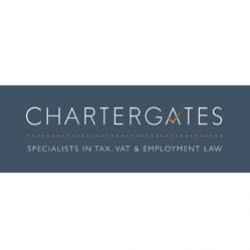How one IT consultant just paid the price for not checking his tax return from his accountant
A new First-tier Tribunal ruling involving an IT consultant is a valuable reminder for IT contractors that tax obligations to HMRC demand attention to detail, particularly in the realm of self-assessment, writes Bhavina Carsane, a consultant at law firm Chartergates.
And a further reminder from the case which gets to the heart of it -- the responsibility for ensuring timely submission and accuracy in every aspect of your contractor tax return rests firmly on the shoulders of you, the taxpayer, regardless of whether professional assistance, such as that of an accountant, has been enlisted.
The case
In Scott Thompson v HMRC, the FTT delved into his self-assessment return for the tax year ending April 5th 2014.
HMRC issued Mr Thompson, an IT consultant, with a penalty for an inaccurate return in 2020, which he appealed in 2023.
The FTT had to determine whether to allow the late appeal and, if so, whether to uphold the HMRC penalty on the basis of deliberate behaviour, or in the alternative, failure to take reasonable care.
Background in Scott Thompson versus HMRC
Mr Thompson was employed until 2013, and subsequently decided to become self-employed.
During this period, he received income from Big Fat Buddha (‘BFB’), an organisation which claimed to specialise in IT contracting, and Atlas Trustees Ltd (‘Atlas’), and this was income which he thought was subject to PAYE tax and NIC deductions.
Thompson engaged with a local accountancy firm, B2B, to complete his 2014 tax return. However, while Mr Thompson notified B2B of his sources of income, the 2014 tax return omitted the income he received from BFB and Atlas.
Thompson’s failure, and HMRC’s non-enclosure
Despite being sent the tax return to review, Mr Thompson failed to spot the omission.
Following a HMRC enquiry, the inaccuracy was revealed, leading to additional tax liabilities and penalties. Mr Thompson did not contest the tax liabilities, which he paid, but he did contest the penalties.
The FTT judgment states that the IT consultant wrote to HMRC to say: “I do however contest the penalty explanation, totalling £12,634.04.”
However, HMRC proceeded with the penalty, informing Mr Thompson he did not provide sufficient evidence to suggest that the behaviour was not deliberate.
The penalty notice was not enclosed with HMRC’s letter.
As Mr Thompson did not hear anything further from HMRC, he assumed the appeal had been accepted and the matter was settled.
This was until -- three years later -- when a bailiff arrived at his front door!
Why the FTT granted Thompson’s appeal
The FTT first considered whether to allow the late appeal. Despite the significant delay, the FTT recognised Mr Thompson's genuine belief in having appealed earlier, ultimately granting his appeal.
The crux of the case then lay in determining whether Mr Thompson's actions constituted deliberate behaviour or a failure to exercise reasonable care.
The FTT emphasised that it was HMRC's obligation to establish deliberate or careless behaviour, rather than placing the burden on the taxpayer to prove innocence in this regard.
What is the test for 'deliberate behaviour'?
The FTT applied the test for deliberate behaviour outlined by the Supreme Court in HMRC v Tooth 2021, in which it was concluded such behaviour generally describes conduct that amounts to fraud or is akin to fraud.
In relation to the penalty provisions, HMRC must establish an intention 'to mislead the Revenue on the part of the taxpayer as to the truth of the relevant statement'. Contrary to HMRC’s assertions, the FTT accepted Mr Thompson’s evidence that he had provided all relevant information to B2B and concluded that the omission did not meet the threshold for deliberate behaviour.
Reasonable Care
The FTT subsequently turned to HMRC’s alternative submission regarding the failure of Mr Thompson -- who represented himself -- to exercise reasonable care. The FTT emphasised that despite seeking professional assistance, taxpayers cannot absolve themselves of responsibility entirely.
Taxpayers are obligated to scrutinise the work performed by professionals to the extent of their own competence. Here, the FTT found Mr Thompson's failure to conduct a thorough review of his own tax return, ensuring the inclusion of all income sources, demonstrated a failure to exercise reasonable care.
The tribunal said: “We allow the application and the appeal against the penalty assessed on the basis of deliberate behaviour. However, we consider that the appellant is liable to a penalty based on his failure to take reasonable care.”
What Thompson V HMRC means for other IT consultants
This FTT case highlights the importance of taxpayer diligence in scrutinising tax returns, irrespective of professional assistance.
But it also reinforces HMRC's burden of proof in establishing deliberate or careless behaviour.
Arguably, though, Mr. Thompson's self-representation at the tribunal meant opportunities were missed to challenge HMRC's alternative submission, which could well have been identified by professional representatives had they been engaged.


